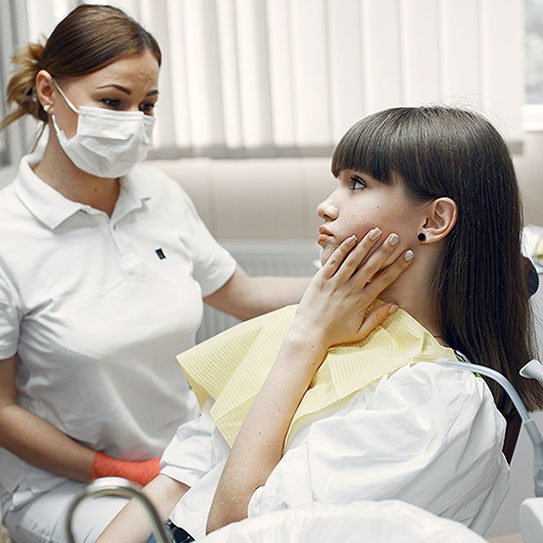
For numerous orthodontist patients in New Jersey, wisdom teeth removal has become a significant oral surgery milestone during their late teens and early twenties. It’s a shared experience documented through social media, with Instagram images of swollen cheeks and funny TikToks showcasing anesthesia-induced antics. While it has become somewhat of a rite of passage, it raises the question: why do we have these teeth in the first place if the majority eventually opt for their removal?
Molars the Modern Diet No Longer Needs
The predominant theory regarding the existence of a third set of molars, or wisdom teeth, stems from the dietary needs of our ancient ancestors. Unlike today’s softer and processed foods, the diets of our forebears primarily consisted of roots, fibrous plants, and raw meat, necessitating the presence of wisdom teeth for effective mastication.
Some experts propose that our diets play a more crucial role than genetics in determining the accommodation of all thirty-two teeth within our jaws. Consuming a diet similar to our prehistoric ancestors’ during developmental years could potentially stimulate enough jaw growth to make room for wisdom teeth. In contrast, a modern diet, notably softer and lacking the same stimuli, may not facilitate the required jaw development. (As fascinating as this is, we don’t recommend trying it.)
Why Wisdom Teeth Are Removed Through Oral Surgery
While a small (but growing) percentage of individuals either never develop wisdom teeth or have fewer than the typical four, they usually appear between the ages of 17 and 21. Some people are lucky enough to have room for their wisdom teeth to grow in comfortably, so extraction is not necessary. Others are less fortunate, and oral surgery may be needed to avoid other problems due to impaction or crowding.
Orthodontists often advise wisdom tooth extraction primarily due to impaction, wherein the teeth become trapped beneath the gums, leading to the formation of cysts and potential damage to nearby teeth and bone. Insufficient room in the jaw can also be a compelling reason for extraction, preventing issues like damage, crowding, and pain. Additionally, certain dental procedures may necessitate the removal of wisdom teeth. It’s worth noting that if your wisdom teeth emerge correctly and you can maintain proper oral hygiene, removal may not be necessary, allowing you to enjoy the benefits of enhanced chewing power.
Pre-Surgery To-Do List
In the event that you are recommended for wisdom tooth removal, it’s essential to prioritize rest in preparation for the procedure to facilitate a speedy recovery. The first day or two after surgery, drink plenty of water (while avoiding alcoholic, caffeinated, and hot beverages, as these can potentially complicate the healing process at the extraction sites).
The good news is that this is a great time to indulge in a variety of soft foods such as ice cream, yogurt, and applesauce. After a few days, you can gradually introduce soups into your diet, but it’s advisable to wait a week or two before reintroducing hard or chewy foods to support the healing process.
We’ll Take Care of Your Smile
No two cases of oral surgery wisdom teeth removal are exactly the same, which is why we approach them on a case-by-case basis at our New Jersey orthodontist practice. We watch their progress as they come in to determine whether extraction will be necessary. Some discomfort is normal for any teeth coming in, but if you’re experiencing what seems like an unusual amount of pain from your wisdom teeth, come see us at our most convenient New Jersey location right away. You can learn more about us by checking our business page.
We look forward to seeing your smiling faces!


